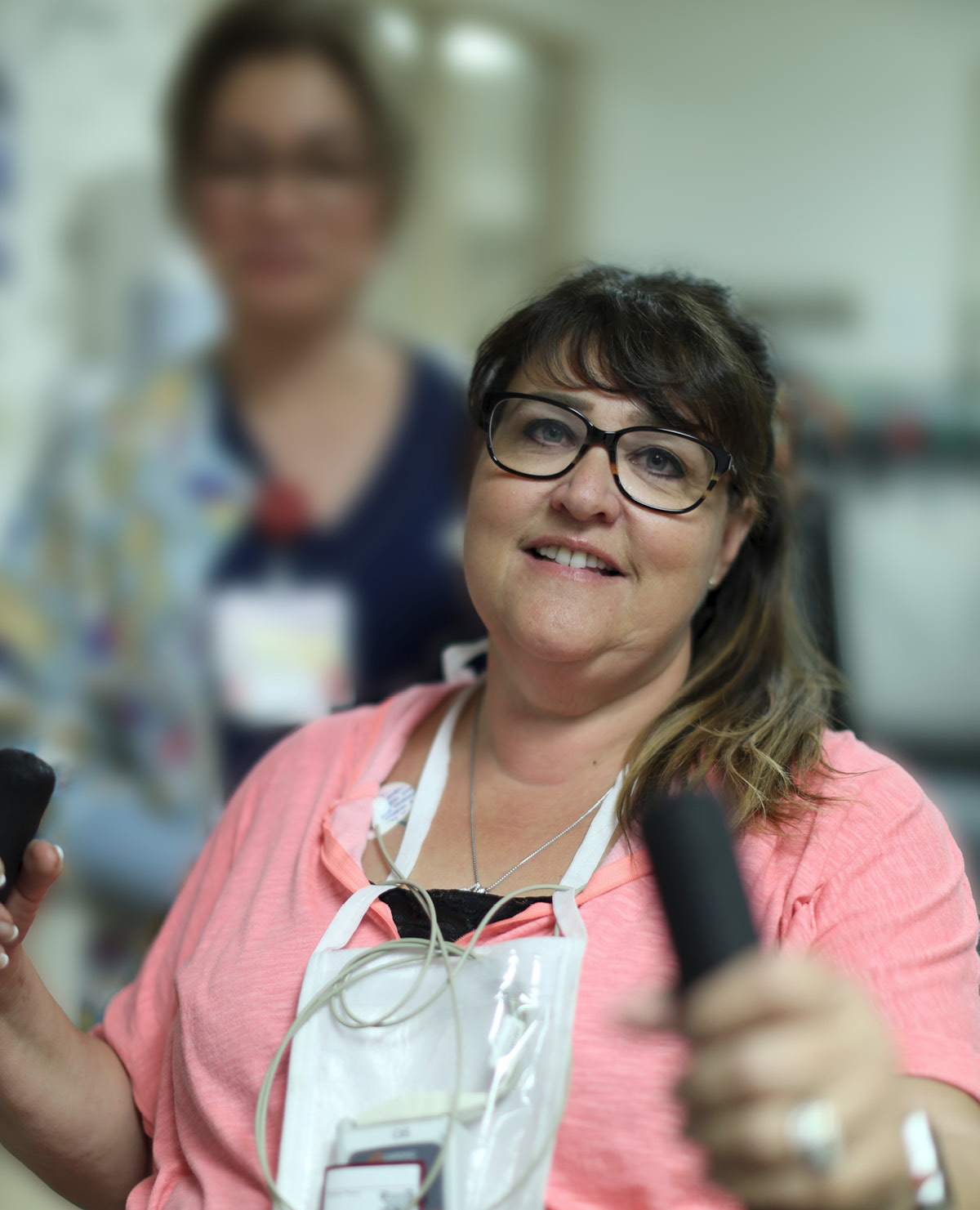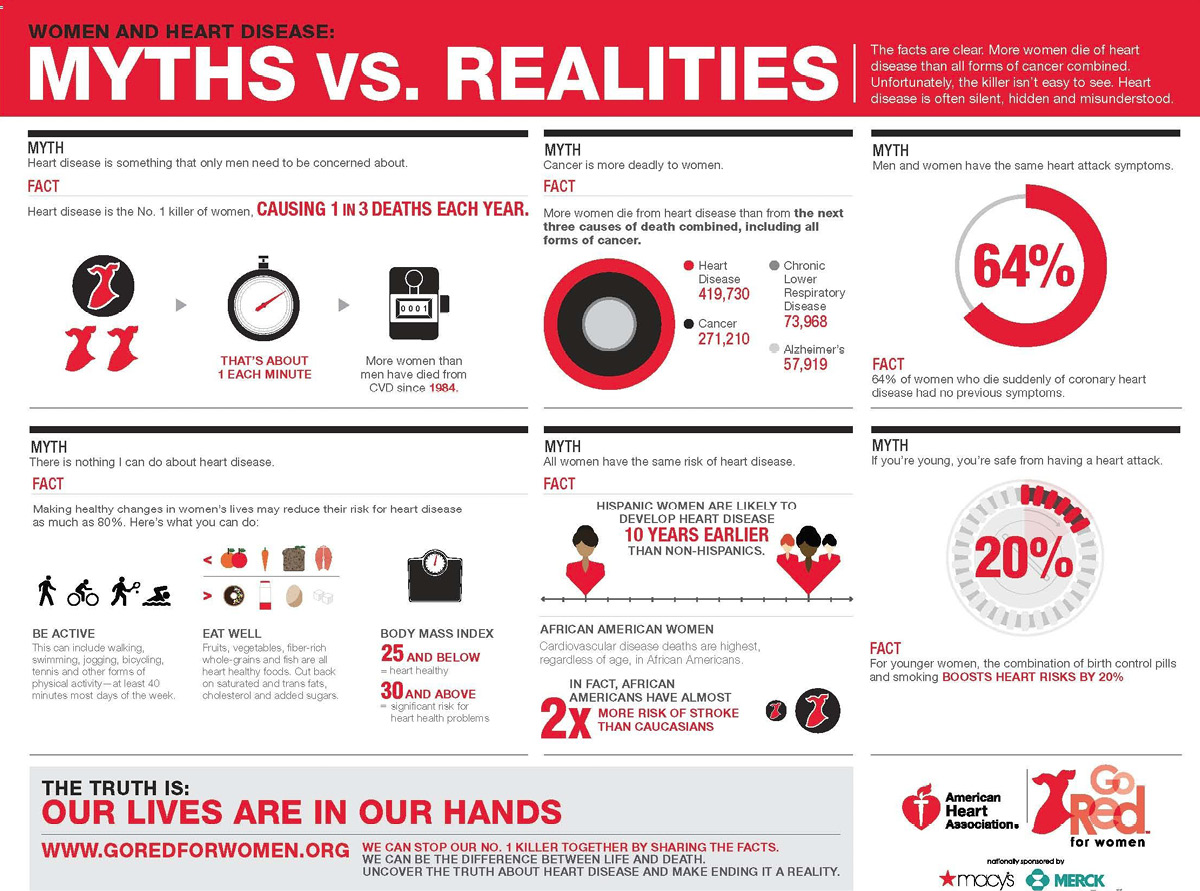Surviving a Near-Death Experience

On the evening of Dec. 11, 2018, Christina Mason was getting ready for bed when she began to notice some unusual symptoms: shoulder pain, vomiting, and lung pain. Mason was uncomfortable, but the nagging pain remained far from intense. The otherwise healthy 49-year-old woman simply thought she might be developing a case of bronchitis. Like many women in her situation, Mason had absolutely no idea she was having a life-threatening heart attack, and she waited until the following day to seek care.
While Mason ultimately survived this delay in seeking care, many other women are not so fortunate. Women are far more likely than men to have atypical symptoms of a heart attack, including abdominal pain, shortness of breath, general fatigue, and shoulder, neck, and jaw pain, according to Dr. Jimmy Diep, a cardiologist at the UMC Cardiology and Stroke Center. In some cases, women experience heart attacks without feeling any chest pain, which often leads to delayed care.
“Women tend to have worse outcomes than men across the board because they’re typically diagnosed with heart disease later and they’re treated later,” Dr. Diep says. “When women have heart disease, it’s usually more severe.”
With no chest pain and no history of heart issues, Mason said she did not recognize the severity of the situation until she decided to seek treatment at a UMC Quick Care location, where the health care team performed an echocardiogram and immediately sent her to UMC’s Adult Emergency Department.
When she arrived at UMC’s Emergency Department, a test revealed the harsh reality of her condition.
“They told me I was having a massive heart attack,” she says. “I felt fine, believe it or not. At that point, I had no pain and I was walking around.”
Cardiologists discovered that Mason had suffered a potentially fatal “widowmaker” heart attack, characterized by 100 percent blockage of the left anterior descending artery.
“They were concerned some of the heart tissue died because I waited too long for treatment,” Mason says. “I was terrified.”
As a result of this potential damage, cardiologists initially discussed the potential need for open-heart surgery, a prospect that filled Mason with dread. Twenty years earlier, nearly to the exact day, Mason’s grandmother suffered a heart attack and had open-heart surgery at a different hospital.
“She went into open-heart surgery and never came out,” Mason says.
Dr. Chowdhury Ahsan, UMC’s Chief of Medicine and Director of Cardiac Catheterization and Intervention, helped Mason avoid open-heart surgery. He performed a cardiac catheterization procedure to place four stents and open the blocked artery.
“It was amazing,” Mason says. “I don’t think there’s another hospital that could have done what they did.”
Dr. Ahsan explains that the UMC Cardiology and Stroke Center is staffed by an expertly trained team of cardiac care professionals who utilize the latest innovations in care to promote successful outcomes for patients like Mason. Building upon UMC’s reputation for delivering high-quality care, Dr. Ahsan and his team have the ability to perform a complex percutaneous coronary intervention, a minimally invasive procedure used to treat narrowed or obstructed coronary arteries. UMC also offers the advanced Impella heart pump, the smallest device of its kind, which is guided through an artery to temporarily pump blood during certain procedures.
“We have built a world-class team supported by the latest breakthroughs in medical technology to provide women and men with high-quality cardiac care,” Dr. Ahsan says. “We look forward to continuing our mission to elevate the level of care available in Southern Nevada.”
Mason benefitted from the experience and skill of UMC’s Cardiology and Stroke Center team. Following a successful catheterization procedure, she returned home and came back to UMC for another procedure in February to address a blockage in her right coronary artery.
Seeing heart disease as an issue primarily affecting men, Mason says she never thought she would experience a life-threatening heart attack. Dr. Diep says this is a common misconception among patients, and he encourages women to recognize the risks of heart disease
“People should know that heart disease is the No. 1 killer of women and men in America,” Dr. Diep says. “Women have to be vigilant about recognizing the symptoms and seeking immediate care.”
Following her heart attack, Mason’s left ventricle was not pumping enough blood with each contraction. This measurement, known as the left ventricle ejection fraction, stood at 35 percent, which is dangerously low and well below the normal level of 50 to 70 percent. Mason beams with pride, revealing that this key metric has since increased to 60 to 65 percent, falling within the normal range.
After her procedure in February, Mason began visiting UMC’s Cardiac Rehabilitation Unit three times a week at the recommendation of Dr. Ahsan. Since beginning her rehabilitation sessions at UMC, Mason says she has experienced significant improvements to her health.
In addition to helping Mason regain her health through close monitoring and a valuable rehabilitation exercise program, UMC’s Cardiac Rehabilitation Unit provided Mason with an unparalleled support system.
“The support the nurses gave me was everything,” she says. “UMC’s Cardiac Rehabilitation nurses are amazing. They really helped me get through this.”
Mason quickly realized she was far from alone on her path to improved heart health. She found solace in the bonds she developed with her fellow patients during rehabilitation sessions and at UMC’s Cardiac Support group, which meets on a monthly basis.
“We learned from each other, exchanged recipes, and celebrated our accomplishments,” she says, underscoring the importance of having a strong support system in place.
She plans to continue attending UMC’s Cardiac Support group meetings in hopes of offering assistance to other patients in similar situations.
“I’ll never stop going to the support group meetings,” she says. “One month, there might be someone like me who needs my help and support.”
Mason also found strength in the support provided by her loving family. “My husband never left my side,” she says. “If it wasn’t for the support of my family, I wouldn’t be here today.”
Thanks to the ongoing care, support, and rehabilitation she received from UMC, Mason said she is thrilled to be back to her normal life, running a local landscaping business with her family.
While she has one more month of rehabilitation left, Mason said the lessons she learned from UMC will last a lifetime. Following the advice of UMC’s health care professionals, Mason plans to continue exercising daily while watching her cholesterol levels and frequently visiting her primary care provider for preventive care.
Heart disease is responsible for approximately one in four female deaths in the United States, and nearly two-thirds of women who die suddenly as a result of heart disease have no prior symptoms, according to data from the U.S. Centers for Disease Control and Prevention. The CDC also reports that nearly half of the women in the U.S. fail to recognize heart disease as the leading cause of death among women.
Dr. Diep encourages women to regularly visit their primary care providers, maintain a healthy diet, receive frequent blood pressure checks, and monitor their cholesterol. Smokers have a significantly increased risk of heart disease, he says, advising male and female smokers to reduce their risk by quitting smoking immediately.
In addition to smoking, the CDC has identified high blood pressure and high LDL cholesterol as the key risk factors for heart disease. Nearly half of Americans have at least one of these three key risk factors. Additional risk factors include diabetes, poor diet, being overweight or obese, a lack of physical activity, and excessive alcohol consumption.
Mason says she urges women to learn more about the risks of heart disease and seek care immediately for any issues.
“If you don’t feel right, please just go to the doctor,” she says. “I waited too long, and it very well could have cost me my life.”

